Postdoctoral Fellowship in Neuropsychology
Duration: Two years
Number of positions: One
APPCN-member program
Masks are required inside all of our care facilities. We are vaccinating all eligible patients. Learn more:
Vaccines, Boosters & Additional Doses | Testing | Patient Care | Visitor Guidelines | Coronavirus
Find more COVID-19 testing locations on Maryland.gov.
The Division of Rehabilitation Psychology and Neuropsychology in the Johns Hopkins Department of Physical Medicine and Rehabilitation (PM&R) offers several specialty postdoctoral fellowship programs and predoctoral externships. Our clinical fellowships offer a major area of study in Rehabilitation Psychology or Neuropsychology.
We are accepting applications for our rehabilitation psychology and neuropsychology fellowships. Deadline for application materials is 12/9. Please see our handbook below for program information, rotation descriptions, and policies.
Download our Fellowship Handbook (.docx)
On this page:
Overview | Programs | Directors | Fellows | Contact Us
The mission of our postdoctoral fellowship programs is to provide an organized sequence of experiential and didactic education and training activities in diverse rehabilitation settings and with focused supervision and mentoring. Our programs focus on adult rehabilitation populations with a wide range of injuries, illnesses, disabilities, and acute and chronic health conditions.
Fellowship activities support the development of Advanced competencies in:
Interviews and weekly didactics will be conducted virtually. Monthly seminars and periodic division meetings may be virtual or in-person based on meeting size and in accordance with Johns Hopkins Medicine (JHM) policies. Inpatient clinical services and supervision continue to be provided in person. Some inpatient team meetings are virtual. Outpatient clinical services and supervision are conducted in-person and virtually in accordance with patient needs, insurance policies, and JHM policies. All trainees are provided with personal protective equipment and training to conduct these activities.
1st Year Rehabilitation Psychology Fellow
3 days/week acute inpatient rehabilitation (three 4-month rotations)
1 day/week outpatient rehabilitation clinic (example populations: chronic pain clinic, covid, multiple sclerosis)
½ day/week didactics
½ day/week research
1st Year Neuropsychology Fellow
3 days/week acute inpatient rehabilitation
1 day/week outpatient neurorehabilitation clinic (example populations: stroke, multiple sclerosis, TBI/ABI, SCI/D, cancer)
½ day/week didactics
½ day/week research
2nd Year Rehabilitation Psychology Fellow
3-4 days/week outpatient rehabilitation clinic (example populations: chronic pain clinic, covid, multiple sclerosis)
optional minors: 1 day/week medical ICU, 1 day/week neurorehabilitation clinic
½ day/week didactics
½ day/week research
2nd Year Neuropsychology Fellow
3 days/week outpatient neurorehabilitation clinic (example populations: stroke, multiple sclerosis, TBI/ABI, SCI/D, cancer)
minor: 1 day/week pediatric neuropsychology at Kennedy Krieger Institute
½ day/week didactics
½ day/week research
*Schedules and rotation duration subject to change based on supervisor availability.
You must receive your doctoral degree before the start of the program to be eligible for this training.
Please refer to our comprehensive Fellowship Handbook for history of the program, description of training sequence and rotations, and all policies and procedures.
Please use our application portal to apply for our fellowships.
Duration: Two years
Number of positions: One
APPCN-member program
Duration: Two years
Number of positions: Two
CRPPTP-member program
Duration contingent on funding and fellow’s goals
Duration contingent on funding and fellow’s goals
Rehabilitation Psychology and Neuropsychology fellows in our programs demonstrate impressive and diverse training backgrounds, clinical excellence, research scholarship and advocacy activities. They engage in mentored clinical care and research and present their work in high-quality peer-reviewed journals (e.g., PM&R, Archives of PM&R, Rehabilitation Psychology, The Journal of Pain, Health Psychology) and at national and international conferences (e.g., rehabilitation psychology, International Neuropsychological Society and US Association for the Study of Pain conferences).
 Nwakaego “Ada” Nmezi, Ph.D. – Rehabilitation Psychology Fellow, Chief Fellow 2021 - 2022
Nwakaego “Ada” Nmezi, Ph.D. – Rehabilitation Psychology Fellow, Chief Fellow 2021 - 2022
Graduate Program: University of Florida, Counseling Psychology
Internship Program: Rush University Medical Center
Undergraduate Program: SUNY Oneonta, Psychology & Sociology
Professional Interests: racial and ethnic health disparities in cardiovascular and cerebrovascular health
Fun fact/hobby: "Prior to starting my doctoral degree, I would design my own clothes. Unfortunately, I couldn’t sew so I would have my friend sew the clothes after designing and sourcing my materials. I am the oldest of 4 siblings and the shortest."
Why I chose Johns Hopkins: "I chose Johns Hopkins because of the strong emphasis on cross-cultural considerations in patient care along with a willing desire to engage in patient advocacy and promote health equity among underserved populations."
After Fellowship: Dr. Nmezi has accepted a staff rehabilitation psychologist position at MedStar Good Samaritan Hospital.
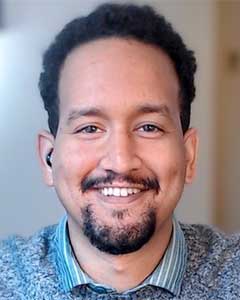 Fenan Rassu, Ph.D. – Pain Psychology Fellow
Fenan Rassu, Ph.D. – Pain Psychology Fellow
Graduate Program: Texas A&M University, Clinical Psychology
Internship Program: Baylor College of Medicine
Undergraduate Program: Texas A&M University, Psychology
Professional Interests: pain management, behavioral medicine
Fun fact/hobby: "I enjoy exploring new cities, discovering coffee shops, physical exercise, and creating media designed to educate through entertainment."
Why I chose Johns Hopkins: "The Division of Rehabilitation Psychology and Neuropsychology has a strong focus on providing effective, patient-centered care. Members of the division and their collaborators also conduct innovative and clinically relevant research that benefits patients living with chronic pain."
After Fellowship: Dr. Rassu has accepted a faculty position in the Johns Hopkins PM&R Division of Rehabilitation Psychology and Neuropsychology.
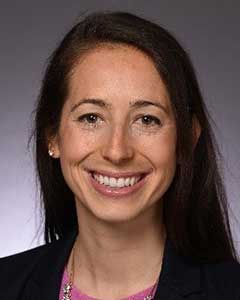 Emily Smith, Ph.D. – Neuropsychology Fellow, Chief Fellow 2021 - 2022
Emily Smith, Ph.D. – Neuropsychology Fellow, Chief Fellow 2021 - 2022
Graduate Program: University of Texas Southwestern Medical Center, Clinical Psychology
Internship Program: University of Texas Southwestern Medical Center
Undergraduate Program: Rhodes College, Neuroscience
Professional Interests: neuropsychological assessment and intervention, neurorehabilitation, brain health, lifestyle factors
Fun fact/hobby: "I enjoy cooking new dishes with novel ingredients and different flavor profiles. I recently learned how to make mussels in honor of the Maryland seafood scene."
Why I chose Johns Hopkins: "I chose Johns Hopkins because of the comprehensive experiences the fellowship program offers. There are endless opportunities for assessment, intervention, as well as consultation with rehab team members. The training environment is extremely supportive and flexible to prioritize my areas of interest. Additionally, training in neurorehabilitation nicely complements my prior experiences in neurodegenerative diseases."
After Fellowship: Dr. Smith has accepted a staff neuropsychologist position at LifeBridge Sinai Hospital.
 Brook Clark, Ph.D. - Neuropsychology Fellow, Chief Fellow 2022 - 2023
Brook Clark, Ph.D. - Neuropsychology Fellow, Chief Fellow 2022 - 2023
Graduate Program: University of Montana, Clinical Psychology
Internship Program: University of Missouri Health Sciences Consortium
Undergraduate Program: University of Montana, Anthropology
Professional Interests: neuropsychological oncology, symptom and performance validity, chronic illness rehab
Fun fact/hobby: anything forensic science
Why I chose Johns Hopkins: "Faculty are all exceptional and dedicated teachers and foster an environment of collaboration."
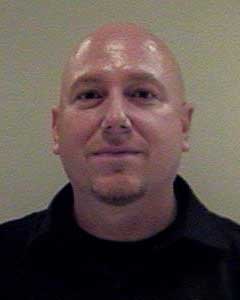 Andrew D. May, Psy.D. - Rehabilitation Psychology Fellow, Chief Fellow 2022 - 2023
Andrew D. May, Psy.D. - Rehabilitation Psychology Fellow, Chief Fellow 2022 - 2023
Graduate Program: The Chicago School of Professional Psychology, Clinical Psychology
Internship Program: Norton Sound Health Corporation, Alaska Psychology Internship Consortium
Undergraduate Program: Duquesne University
Professional Interests: critical care, palliative care, end of life care, stroke, brain injury, neurorehabilitation, education and training
Fun fact/hobby: "I have lived in Alaska and Hawaii. I enjoy sports, history, and trying new foods."
Why I chose Johns Hopkins: "I chose Johns Hopkins because of the culture of the PM&R Department, the supportiveness of the faculty, and the abundance of training and mentorship opportunities available within the Division. Additionally, the medical complexity and diversity of patient presentations that we see at Hopkins are unparalleled. I am constantly being challenged and continually learning."
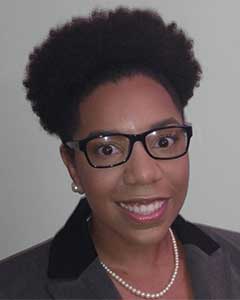 Lakeya McGill, Ph.D. - T32 Research Fellow
Lakeya McGill, Ph.D. - T32 Research Fellow
Graduate Program: University of Maryland Baltimore County (UMBC), Human Services Psychology
Internship Program: University of Washington Medical Center
Undergraduate Program: Rhodes College
Professional Interests: health equity, neurorehabilitation, chronic pain, sickle cell disease
Fun fact/hobby: "I am from Lexington, a small town in West Tennessee, located about 2 hours from both Memphis and Nashville."
Why I chose Johns Hopkins: "In addition to excellent training, the Johns Hopkins Division of Rehabilitation Psychology and Neuropsychology provides a warm, supportive, and collaborative environment, which is essential for my next career stage."
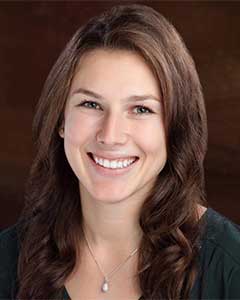 Nicolette Carnahan, Ph.D. - Rehabilitation Psychology Fellow
Nicolette Carnahan, Ph.D. - Rehabilitation Psychology Fellow
Graduate Program: American University, Clinical Psychology
Internship Program: Central Virginia VA Healthcare System
Undergraduate Program: Whitman College, Psychology
Professional Interests: adjustment to disability/chronic health conditions, trauma-informed care, traumatic brain injury and suicide risk, values-based interventions
Fun fact/hobby: "I was a collegiate soccer player and continue to enjoy any activity that incorporates teamwork, exercise, and/or the outdoors."
Why I chose Johns Hopkins: "I chose Johns Hopkins PM&R due to the breath and quality of the clinical, research, and professional development opportunities in rehabilitation psychology, as well as the chance to work closely with supportive and exceptional faculty and students. During my training experience as a predoctoral extern here, I was struck by the supportive environment that has been created and wanted to become a part of this community of fantastic, empathic, and extremely competent psychologists and human beings."
 Jeremiah Lum, Ph.D. - Neuropsychology Fellow
Jeremiah Lum, Ph.D. - Neuropsychology Fellow
Graduate Program: Seattle Pacific University
Internship Program: Bay Pines VA Healthcare System, Neuropsychology Track
Undergraduate Program: University of Washington, Seattle
Professional Interests: clinical neuropsychology, advanced neuropsychological interpretive methods, performance validity, psychological predictors of cognitive test scores, therapeutic assessment modalities, rehabilitation psychology, brief behavioral interventions for families/caregivers of individuals with neurologic disease or insult, caregiver burden
Fun fact/hobby: "In my spare time I enjoy breeding exotic animals, reading, collecting fountain pens, and spending time outdoors"
Why I Chose Johns Hopkins PM&R for Fellowship: "Formal training in rehabilitation neuropsychology is very rare and is what initially drew me to PM&R at Johns Hopkins. Our division embodies the idea that assessment and intervention are not mutually exclusive, and, when thoughtfully integrated, lead to more comprehensive treatment recommendations than either specialty in isolation. The faculty's knowledge in these areas, and their focus on individualized professional development, are exemplary. I am humbled at the chance to learn from them in this fast-paced academic medical environment!"
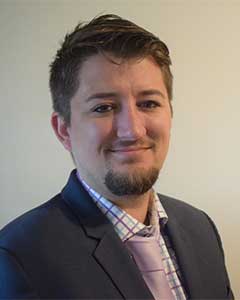 Brett Opelt, Ph.D., M.S. - Psychosocial Rehabilitation Fellow
Brett Opelt, Ph.D., M.S. - Psychosocial Rehabilitation Fellow
Graduate Program: New Mexico State University, Counseling Psychology
Internship Program: El Paso VA Health Care System
Undergraduate Program: University of Wisconsin-Milwaukee
Professional Interests: MS symptoms, behavioral sleep medicine, DBT and ACT interventions for MS symptom management, and family understanding of disability
Fun fact/hobby: "I enjoy watching new TV shows and knitting while watching TV. I am extroverted, although I hate the cold and will 'hibernate' during winter. Summer activities are more my jam."
Why I chose Johns Hopkins: "I chose Johns Hopkins PM&R because the supportive, closeness, and genuineness of the department shined through during my interview. And since starting in the department, they have shown those same behaviors in person. The learning more about MS and the chance to being part of the MS Rehab research team."
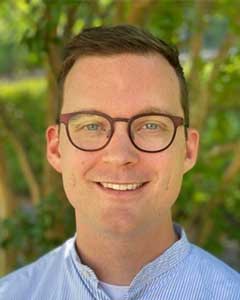 Scott Ravyts, Ph.D. - Pain Psychology Fellow
Scott Ravyts, Ph.D. - Pain Psychology Fellow
Graduate Program: Virginia Commonwealth University, Clinical Psychology
Internship Program: Duke University Medical Center
Undergraduate Program: The University of Texas, Psychology
Professional Interests: pain management, behavioral sleep medicine, adjustment to chronic illness, trauma
Fun fact/hobby: "I was born in Belgium and my first language is French."
Why I chose Johns Hopkins: "I chose Johns Hopkins for the depth of research and clinical opportunities related to pain psychology, the ability to collaborate with researchers within and outside of PM&R, and for the faculty’s commitment to training well-rounded psychologists."
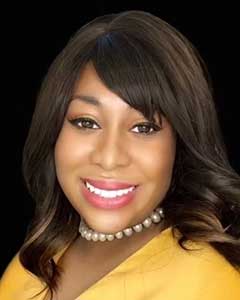 Alexandria Rogers, Ph.D. - Rehabilitation Psychology Fellow
Alexandria Rogers, Ph.D. - Rehabilitation Psychology Fellow
Graduate Program: University of Georgia, Counseling Psychology
Internship Program: Hennepin Healthcare
Undergraduate Program: The Pennsylvania State University, English and Psychology
Professional Interests: rehabilitation psychology, chronic pain, adaptation to chronic illness, health disparities, caregiver support, trauma
Fun fact/hobby: "I sang at the White House with my choir and can play four instruments."
Why I chose Johns Hopkins: "Johns Hopkins PM&R is home to some of the most influential people in the fields of rehabilitation psychology and neuropsychology. Johns Hopkins is one of the best hospitals in the world and offers impeccable training, while also creating a familial atmosphere. The opportunity to obtain further training in acute rehabilitation and chronic pain in my home state was an easy decision."
Please let us know if you have questions about postdoctoral fellowships in the Division of Rehabilitation Psychology and Neuropsychology.
For general inquiries, email [email protected]. For program-specific questions, contact the relevant program directors listed on each program page.